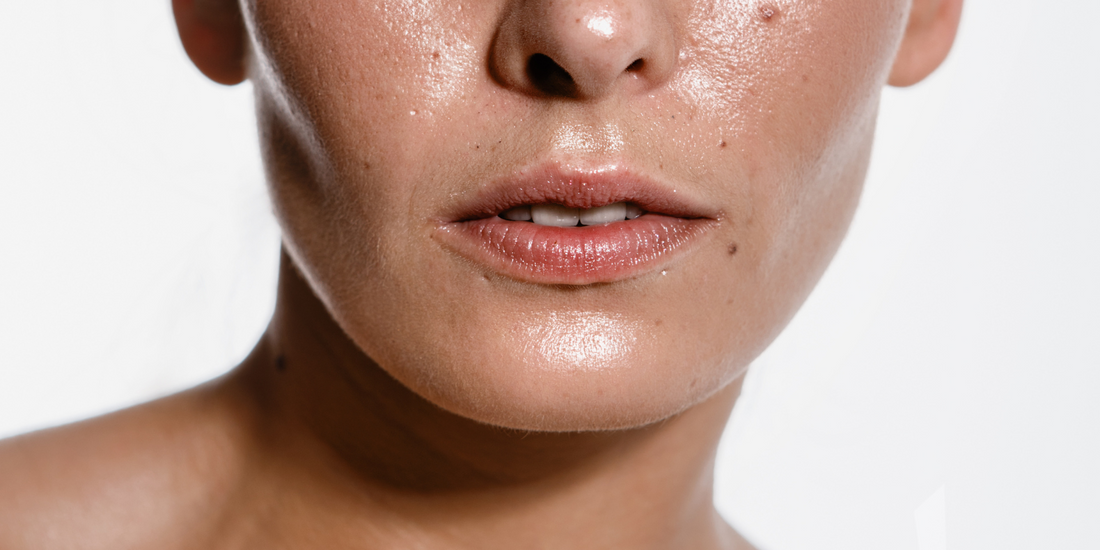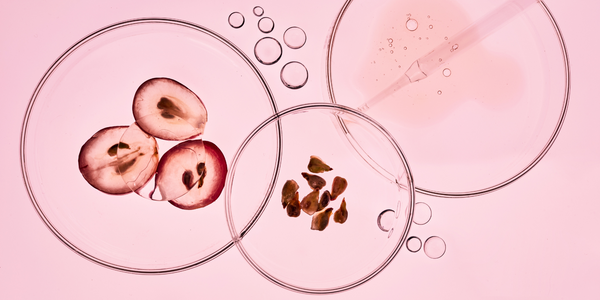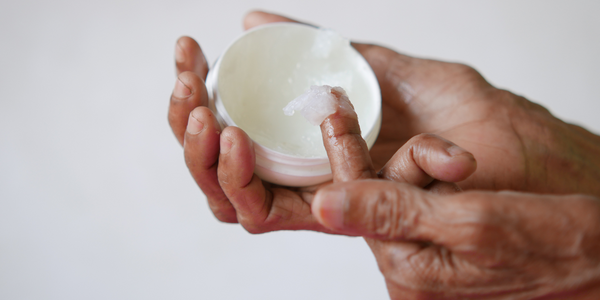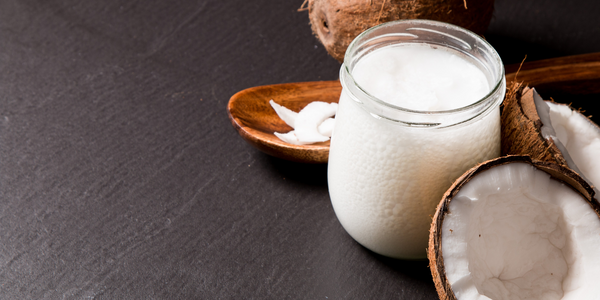
Transformative Skincare Ingredients for Oily Skin
Share
Choosing suitable skincare ingredients for oily skin can be tricky. Unlike other skin concerns, you need ingredients that moisturise but don’t moisturise too much. You also need ingredients that naturally balance oil production and remove excess oils without over stripping them.
The good news? When equipped with the right knowledge, we believe you can make beautiful choices. Read on to discover the ingredients you should and shouldn’t be using in your oily skincare regime.
The Role Ingredients Play in Improving Oily Skin
Choosing skincare products containing suitable ingredients for oily skin plays a significant role in managing this skin concern. And so does avoiding the ingredients that exacerbate oily-acne-prone skin.
For those with this skin type, it's best not to use ingredients that stimulate excess sebum production. Instead, opt for those that regulate oil production without over-stripping natural oils or damaging the skin's protective barrier.
The Ideal Skincare Ingredients for Oily Skin
When you know what to look for, you'll be able to source skincare products for oily skin more confidently. Here are some of the must-have ingredients to include in your checklist.
Retinol
Retinol is a vitamin A derivative frequently used in skin care. Retinol has been shown to speed up cell turnover (the skin's ability to shed and replace dead cells with younger ones). Cell turnover is a natural form of exfoliation that reduces excess skin oil and unclogs pores.
A retinol serum for oily skin can balance and renew your skin while you sleep, so you wake up with a healthy, and most importantly, not greasy glow.
A Few Things To Remember
- Avoid retinol if you're pregnant or breastfeeding.
- If you've never used retinol, start with a lower level (a product containing 0.1% pure retinol).

Green Clay
Green clay is one of the best natural ingredients for rebalancing oily skin. It draws out excess sebum without over stripping the oils integral to healthy skin and has a natural pore refining ability.
Green clay is also a gentle exfoliant that promotes skin healing—an ideal combination for decongesting skin without causing irritation. A green clay mask for oily skin can make your complexion smoother and breakout-free.
Zinc PCA
Zinc PCA is effective for oily skin because it regulates sebum production by lowering the number of androgens (like testosterone) in the body. Having more testosterone in your body than usual can stimulate the sebaceous glands to overproduce sebum, leading to oily skin.
Spritzing a Zinc PCA oily skin toner on your face throughout the day will soothe and refresh while controlling shine.

Grapeseed Oil
Grapeseed oil is naturally derived from the seeds of grapes. The oil’s cleansing properties gently remove excess sebum and dead skin cells, making it an effective skin decongestant.
Grapeseed oil also has some antimicrobial properties that help clear and prevent acne. Consider a cleanser with grapeseed oil to bring your oily skin back into balance.
Witch Hazel
Witch hazel is one of the best ingredients for oily, acne-prone skin. This natural ingredient reduces excess sebum, decongests the skin, and heals the skin's delicate barrier.
A cleansing gel with witch hazel can help you manage breakouts and excess shine without drying or damaging the skin.
Glycolic Acid AHA
Glycolic acid AHA (alpha hydroxy acid) is a powerful exfoliating ingredient used in products for oily skin. With one of the smallest molecules, it can penetrate deeper into the skin than other acids. Aside from being a natural exfoliant, Glycolic acid AHA clears away excess oil, stimulates collagen production and combats acne.
Using Glycolic acid AHA with caution is best, as overuse could irritate the skin, causing excess sebum. If you're unsure, try a professional salon treatment for oily skin.
Best Serum Ingredients for Oily Skin
Serums are a fantastic skincare product to manage oily skin, especially if you choose a water-based product with the right blend of ingredients. The best serum ingredients for oily skin will help control sebum production while nourishing the skin.

Vitamin C
Vitamin C is a powerful serum ingredient for oily skin because it helps it retain moisture effectively. When your skin is sufficiently hydrated, it prevents the sebaceous glands from overproducing sebum. Vitamin C is also proven to manage acne-causing bacteria.
A non-greasy facial serum with Vitamin C can transform your oily skin into a healthy glow while diminishing breakouts.
Panthenol (Pro-Vitamin B5)
B vitamins, in general, are helpful to stay in good skin health. However, pro-vitamin B5 is particularly effective for oily skin. This B vitamin works alongside CoEnzyme A to remove excess sebum and unclog your pores.
Pro-vitamin B5 is also beneficial to control hormonal breakouts and manage acne-prone skin. Meanwhile, its healing properties help to calm inflammation and redness. Try a calming serum with pro-vitamin B5 to balance oil and protect the skin's barrier.
Glycerin
Glycerin is an effective serum ingredient for oily skin because it minimises water loss by attracting environmental moisture onto the skin. And doing so helps your skin to stay hydrated. When your skin is sufficiently hydrated, the sebaceous glands are less likely to overproduce sebum because your skin has enough water.
Glycerin manages to be highly moisturising without adding oil to the skin. It also makes other skincare ingredients more effective by making it easier for them to penetrate deeper skin layers.
Salicylic Acid BHA
Salicylic acid BHA isn't as scary as it sounds. In fact, as a beta hydroxy acid, salicylic acid is an organic compound naturally derived from certain fresh fruits and plants. You can find this skincare ingredient in multiple over-the-counter products and professional skin peels.
Salicylic acid is very effective in serums for oily skin because it cleanses and exfoliates deeply, helping to decongest, unblock pores and treat acne. It also removes excess oil without drying the skin.
What Ingredients Should I Avoid If I Have Oily Skin?
If you have oily skin, it’s best to avoid the following ingredients so you don’t worsen this skin concern.
Petrolatum (Petroleum Jelly)
Petroleum jelly is a by-product of a form of crude oil. It's classed as an occlusive emollient, meaning it forms a protective hydrophobic barrier that sits heavily on the skin.
A greasy, waxy substance like this can worsen oily skin, clog your pores, and cause breakouts and skin irritation.
Top tip: Other occlusive emollients to avoid include beeswax, mineral oils and paraffin.
 Alcohol
Alcohol
Alcohol is a drying ingredient, and while it might seem like a good idea to dry out oily skin, it can worsen matters.
When you have oily skin, aim to use ingredients that keep it hydrated. Doing so will stop the sebaceous glands from trying to overcompensate for lost moisture with excess oil.
Naturally Derived Oils High in Oleic Acid
Natural face oils high in oleic acid are more likely to sit on the skin, making them potentially comedogenic. Comedogenic products (including face oils with a higher concentration of oleic acid) are likely to clog pores and encourage breakouts.
The following natural oils are high in oleic acid. Try to avoid them if you have oilier skin:
- Coconut oil
- Hazelnut oil
- Camellia oil
- Sunflower oil

Artificial Dyes
Artificial dyes tend to be used in makeup like blushers, eyeshadows and lipsticks. The dyes are typically derived from coal tar or petroleum. We've already identified petroleum as an ingredient that worsens oily skin by clogging the pores, and coal tar can do the same, making artificial dyes one to avoid. Synthetic dyes have also been linked to acne breakouts and scarring in the cheeks.
Top tip: Look out for monoazo anilines, indigoids, and fluorans, as these are some of the worst artificial dyes for oily skin.
Which Ingredients Best Support Acne-Prone Skin?
The best ingredients that support acne-prone skin generally help oily skin, too, because they clear the excess oil and dirt that causes breakouts. The following list of ingredients help acne-prone skin:
- Vitamin C
- Witch Hazel
- Zinc PCA
- Green Clay
- Retinol
- Glycolic Acid AHA
- Salicylic Acid BHA
- Liquorice Extract
Recognise these multifunctional superheroes? That's because they've been featured already as ingredients that help oily skin (with the addition of liquorice extract). Liquorice extract has anti-inflammatory properties and soothes breakout-prone skin.
The Bottom Line
When you know the best (and worst) ingredients for your skin type, you're better equipped to choose skincare products and follow a regime suitable for oily skin. If you have oily skin, avoid ingredients that irritate or dry the skin (petroleum, alcohol and synthetic perfumes or dyes, for example), as this could cause sebum overproduction.
Meanwhile, the best skincare ingredients for oily skin nourish and hydrate rather than drying out the skin or over stripping natural oils. They also protect the skin's barrier and gently unclog pores to manage breakouts. Some examples include vitamins for oily skin, including vitamin C or ingredients like zinc PCA and witch hazel.
For more articles to help combat oily skin, read:
- AM/PM Skincare Routine for Oily Skin
- How to Reduce Oily Skin
- Vitamins to Take & Apply to Combat Oily Skin
- Oily Skincare Tips For Women In Their 40s
- Zinc Products for Oily Skin Types
- Best Cleanser for Oily Skin
Or read real life oily skin journeys:

